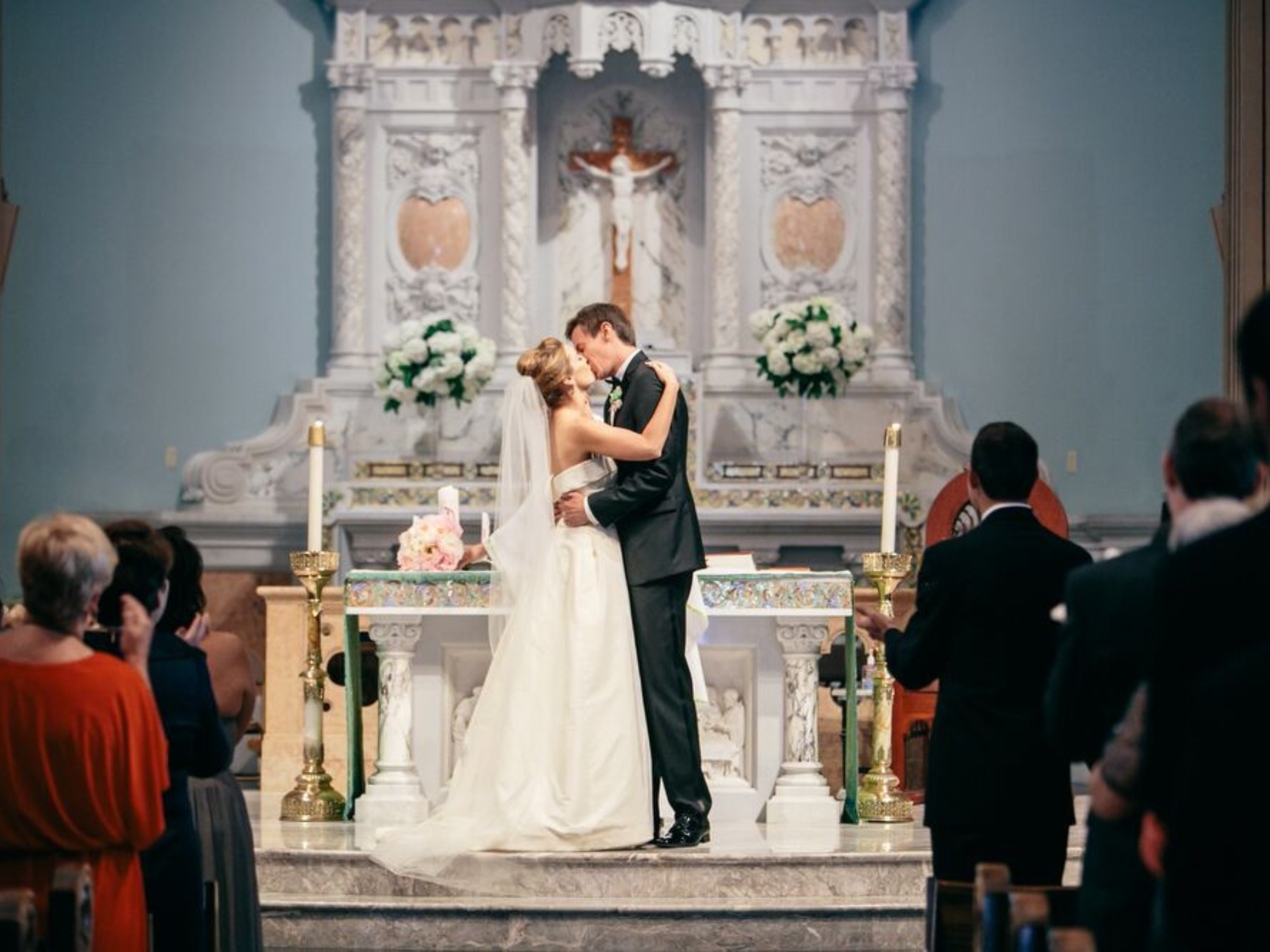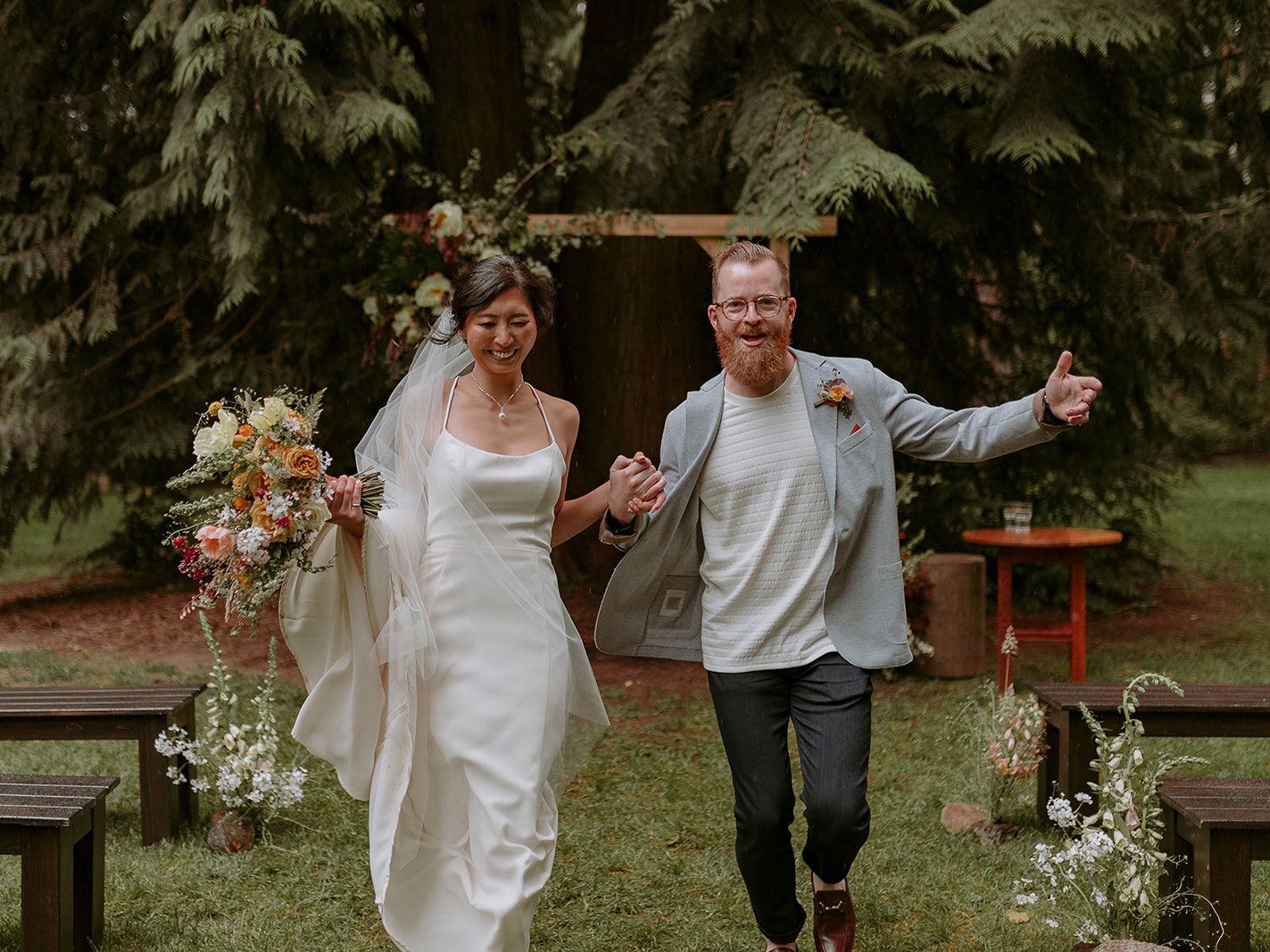The “Till Death Do Us Part” Meaning and Why You Hear It in Wedding Vows
You don't have to be engaged or married to have heard the dozens of famous wedding sayings that are out there, e.g. "Speak now or forever hold your peace." But the "till death do us part" meaning, history and origin is something many people don't know even though we believe it's the most iconic wedding phrase. Keep reading to learn the "until death do us part" meaning, get a historical breakdown of the quote and see modern alternatives if the traditional vow isn't your thing.
In this article:
Meaning | History | Origin | Full Quote | Why Is It in Traditional Vows? | Alternatives
"Till Death Do Us Part" Meaning
"Till death do us part," also written as "until death do us part" and "'til death do us part," has a powerful meaning. Marriage was considered a contract that only ended if death occurred when this saying was written, which makes this vow a lifelong commitment to one's partner only broken if someone dies.
Psst. That means the drama surrounding the spelling of "till" on Hailey Bieber's veil in 2019 was in vain. The use of "'til" and "till" in the traditional vow can be used interchangeably.
The History of "Until Death Do Us Part"
In its earliest recorded version the "till death do us part" saying was written as "till death us depart," according to historians. ("Depart" in this case meant "to separate.") The phrase was eventually changed in 1662 to today's version when the "depart" meaning was altered in the text.
According to Caralynn Lippo of Redbook Magazine, Quakers were more direct with their version of the "until death do us part" wedding vow. Lippo says in the earliest standard Quaker vows, in The Yorkshireman, A Religious and Literary Journal, By a Friend Volume Three, that God was a major part of the union. While holding hands, the vows for both parties went as follows: "Friends, I take this my friend [partner's name] to be my [husband or wife], promising through divine assistance, to be unto [him or her] a loving and faithful [husband or wife], until it shall please the Lord by death to separate us."
"Till Death Do Us Part" Quote Origin
Historians trace the "until death do us part" vow origin to The Book of Common Prayer by Thomas Cranmer, Archbishop of Canterbury. In the first version, published in 1549, the original "till death us depart" comes after the minister asks the man, "Who giveth this woman to be married unto this man?"



What Is the Full Quote of "Till Death Do Us Apart?"
Wondering what the popular quote is in its entirety? Here is the 1552 version from The Book of Common Prayer: "I [Name] take thee [Name] to my wedded wife, to have and to hold from this day forward, for better, for worse, for richer, for poorer, in sickness, and in health, to love, and to cherish, till death us depart, according to God's holy ordinance: And thereto I plight thee my troth."
Lots of religions and cultures have their own variant of this quote. For example, Greek Orthodox wedding vows are written as follows: "I, [Name], take you, [Partner's Name], as my wedded wife/husband and I promise you love, honor and respect; to be faithful to you, and not to forsake you until death do us part. So help me God, one in the Holy Trinity and all the Saints." (Find more traditional wedding vows here.)
Why Is "Till Death Do Us Part" in Traditional Wedding Vows?
In some religions and cultures where "until death do us part" is used, divorce isn't approved or recognized. That's why, even though arguably a little dramatic or intense, death is the only option for getting out of the marital contract. And we know "til death do us part" might sound restrictive to some, but not everyone takes it literally. Even those who don't have religious or cultural reasons for keeping the phrase in their vows, like the passionate, almost gothic romance feeling it promotes because it shows their undying love for their partner.
Alternatives to "Till Death Do Us Part"
Lots of things have changed since 1549 when the "till death do us part" meaning was first introduced. So, if you're a couple who wants to avoid sticking to the traditional wedding vow, we have some options that keep the same sentiment but aren't as morbid. (And while you're personalizing your vows, don't be afraid to break away from the classic template and write something unique to you and your partner.)
- For all time
- Forever
- For eternity
- Until we're wrinkled and old
- From this day forward
- From now until the end of time
- Until you stop laughing at my jokes
- For all my days
- To infinity and beyond
- Until the end of this life and into the next
- For as long as our love shall last
- As long we're both happy
- Until you stop liking my cooking





















